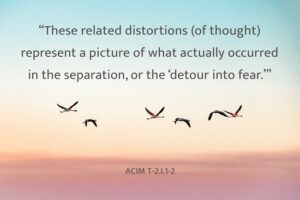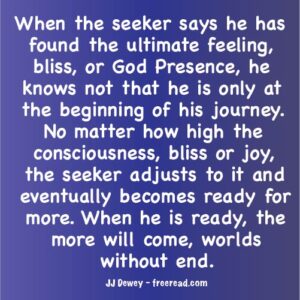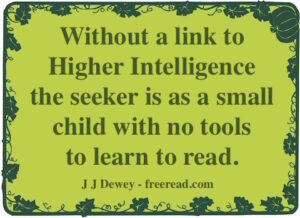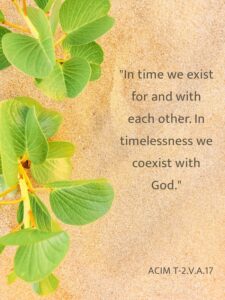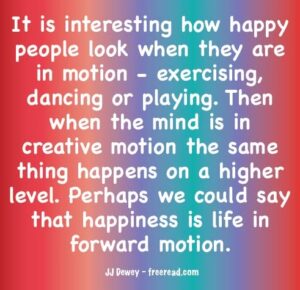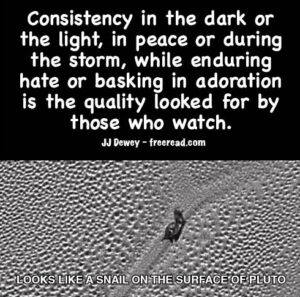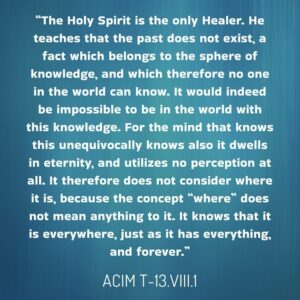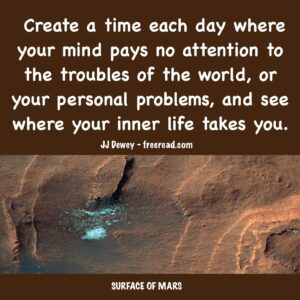
Comparing Teachings
Eckart Tolle speaks over and over to those who are in pain, have anxiety, worry and unwanted thoughts that disturb them. Actually, his book reminds me a lot of Dale Carnegie’s “How to Stop Worrying and Start Living.” He uses a different vocabulary but a lot of the advice is the same as well as the end goal of being at peace despite the concerns surrounding us.
Here are the words of an Amazon reviewer on the Carnegie book that sounds a lot like the reviews of the Tolle books:
“And most importantly, this book teaches you how those people learned to LET GO of their worry and truly, start living differently. Since reading this book, I can much more easily let go of things that used to tear me apart and made me sick thinking about. I wish the author was around to thank, but somehow you just know he knows.”
Actually, I think Tolle’s writings correspond to Carnegie’s “How to Stop Worrying and Start Living.” Similar to “The Secret” is to Napoleon Hill’s “Think and Grow Rich.” Similar ideas of old in a new package for the present.
Here is some additional dialog comparing my thinking to Tolle’s writings:
ET: The ego says: “One day, when this, that, or the other happens, I am going to be okay, happy, at peace.”
JJ: I agree here that many people’s egos seem to have this illusion and for these people Tolle’s writings will be especially helpful. Actually, disciples usually aren’t that bothered if they are happy or not but of course happiness is more fun.
ET: Tolle talks about how enlightened people oscillate between mind and no mind.
JJ: I agree with this and have pointed out how many of the great minds of the past have been “absent-minded” because of their focus on ideas. I do not know if I would call it mindlessness as more of a quieting of the mind chatter of the lower self.
ET: “The mind is essentially a survival machine. Attack and defense against other minds, gathering, storing, and analyzing information.”
JJ: Sounds like he is talking about consciousness as related to the physical brain rather than pure mind.
ET: “In the way I use the word (Mind), is not just thought. It includes your emotions as well as all unconscious mental-emotional reactive patterns.”
JJ: This is a pretty broad definition of mind. No wonder some of his writings on mind seem confusing.
ET: “It wasn’t through the mind, through thinking, that the miracle that is life on earth or your body were created….”
JJ: I would say it had to be done by some kind of mind that figured things out. Let us go back to a time that our DNA did not exist and there was only conscious intelligence focused in the NOW. At that time the DNA did not exist in the present, but the future. Some mind had to come along and look at the needs of the future and figure out how to construct the DNA. If there are any other theories on how intelligence could do this without thinking I would like to hear it.
ET: Suppression is not healthy. We need to be in touch with our emotions.
JJ: Agreed.
ET: He says the mind cannot find the solution to emotional pain.
JJ: My mind has found the solution to emotional pain on a regular basis throughout my life. Without my good ole mind I may have gone insane for I have had much more than my share of emotional turbulence. From my observation it is those who do not think about what they are doing that create the great emotional dramas.
ET: “Love, joy, and peace … are not what I would call emotions.”
JJ: Love and joy are not negative emotions, but I would definitely call the feeling of them an emotional experience.
ET: “The intensity of the pain depends on the degree of resistance to the present moment, and this in turn depends on how strongly you are identified with your mind.”
JJ: We are close on this but with a subtle difference. I have said that pain is caused by a resistance to impulses received from the soul. Sometimes you need to resist what is to avoid paid. For instance, if we did not resist Hitler we would have multiplied the pain of humanity many times over. When I see I am about to drive over a cliff I will resist what is and my good old faithful mind will make a correction that saves much pain.
ET: “Always say ‘yes’ to the present moment. What could be more futile, more insane, than to create inner resistance to something that already is? What could be more insane than to oppose life itself, which is now and always now? Surrender to what is.”
JJ: I really, really, really disagree with this. So people living under Hitler should have just accepted the Nazis because they were “what is” at that time? Thank God I have not surrendered to what is or I would be miserable. I have changed “what is” so my life is free from emotional pain and quite joyful.
Now if he were to tell us to accept the things we cannot change, or higher will, then that would be a different matter, but he did not say this.
ET: In the chapter of “Power of Now” called “Past Pain: Dissolving The Pain-Body” he describes the pain body as composed of past pains that are activated by a trigger of some kind.
JJ: Some think this is the Dweller on the Threshold but he is almost exactly describing the reactive mind, or body from L. Ron Hubbard’s “Science of Mental Health.” The problem is he doesn’t give Hubbard any credit for borrowing his ideas. He does use the term “reactive” several times in describing it but would be more concise if he used Hubbard’s word “engram” to describe the “dormant” pain.
According to Hubbard the reactive body was a survival mechanism that evolved in all animal lives that the human is on the verge out outgrowing for we do not need it to survive as do the animals.
The reactive body is not capable of logic but just simply reacts to pain as a survival mechanism.
Let us take a small fish for instance that has wandered into dangerous waters. He encounters a bigger fish that chased him, takes a bite out of his tail, but he barely escapes with his life. During the moment of intense danger and pain his reactive body kicks in and takes a snapshot of everything the fish experienced to avoid this situation again. This body will record a couple things like the type of seabed, the other fish in the area or maybe even the temperature of the water. These recordings are called engrams.
Then the fish may live a pretty normal fish life for a month or so but then when he wanders into the dangerous waters again, he sees a similar seabed again and this kicks in the engram. The reactive mind takes over and the fish panics whether there is a predator fish there or not. The fish feels a painful impulse to get out of there fast and he flees from what the reactive mind sees as danger.
Hubbard says the reactive mind has been helpful for animals and primitive man, but for modern humanity it creates more problems than it prevents.
Let us say, for example that you are playing ball and get hit on the head and are laying on the ground in a semi conscious situation. Your reactive mind kicks in and for your protection it tries to assess everything you should avoid in order for the pain to not return.
Here is what it takes in:
- The thumping of feet.
- A sweaty smell in the air.
- Someone shouts: “Get a doctor!”
These then are three triggers in the reactive mind that can be activated any time.
Let us suppose the guy heals up and resumes life as normal for ten years. Then one day his grandmother has a heart attack and everyone gathers round. He hears the thumping of feet, the air smells a little like sweat and someone yells, “Get a doctor!”
Suddenly the engram kicks in and the guy gets a splitting headache. Little does he know that this is his reactive mind’s signal to him that he is in danger and should flee. Instead, he just wonders where the pain came from.
Now the engram is activated the headache may return any time he hears the word “doctor” and may even lead to an unreasonable fear of doctors.
He has no idea what is happening to him because he does not understand the reactive mind.
Now according to Hubbard all of us have many engrams that interfere with a productive life and causes unnecessary fears and worries. He developed a method of returning to the pain and neutralizing it. When all engrams are neutralized the person is then a “clear,” and his state of being is supposed to be much enhanced.
Now where Hubbard created an elaborate and very expensive method of becoming “clear” Tolle has developed a simple one which simply consists of detaching oneself from the pain or reactive body and raising one’s consciousness. He was not the first to suggest this method as I briefly described it several times as early as September, 1999.
I wrote:
“The removal of engrams can have some benefit for the astrally polarized person, but what the Scientologists do not realize is that soul consciousness can eliminate most of the problems created by engrams, and the financial cost is zero.
“He who has firm soul contact can register the effects of engrams, prayers, influences and then let them pass through him and dissipate into the ethers.
“Any time you do not feel free it is because some knowledge is lacking for ‘you shall know the truth and the truth shall set you free,’ as the Master said.
“If we ‘seek first the kingdom of God,’ as Jesus also said, ‘then all things will be added.’ This includes a release from engrams and all unwanted influences from painful childhood experiences through soul contact.”
Now I doubt if Tolle got this idea from reading the archives but it does sound like he accumulated some of his ideas on the pain body from studying Hubbard’s writings.
Residual Reading
A reader was talking about getting impressions of books before actually reading them. I do something similar and it’s a little like the residual reading principle taught in my book “Eternal Words.” Often times I do not even need to see the book but just hear the name of the author and the quality of his writing and presentation looms before my inner vision. This has happened many times and it has been very accurate.
When I first heard the name Alice A. Bailey I knew I had to read her books even though, as it turned out, they went entirely against my belief system at the time.
You might remember a couple years ago I rated the writings of Helen Roerich before I had read anything she had written. I later read a couple of her books and found my assessment accurate.
When I first heard the title “A Course in Miracles” I felt the impression that this was a must read.
I had various impressions on “The Celestine Prophecy,” “Conversations with God,” Deepak Chopra, Gary Zukav, and now Eckhart Tolle before I read them, and they have all turned out just as expected. Since I have little time for reading, I find these impressions help me to use what time I have to the best advantage.
After our recent discussion on economics, I received an impression to read a certain book. It cost me fifty USD dollars but I bought it anyway because I know there are some things in there my soul wants me to absorb. I haven’t started it yet, but looking forward to the discoveries I will make.
I hear some thoughts in the background. What’s that? My mind was made up on Tolle in advance and that is why I am not understanding him? No my friends, it is why I do understand him and see things between his lines that some are missing.
“Write down the advice of him who loves you, though you like it not at present.” — English Proverb
March 21, 2008
To search the website, containing millions of words, replace the word “search” with the word or phrase you want to find and place the entire line in the Google search box.
“Search” site:freeread.com
Index for Original Archives
Index for Recent Posts
Easy Access to All the Writings
For Free Book go HERE and other books HERE
JJ’s Amazon page HERE
Check out JJ’s Facebook Group HERE
Follow JJ on Twitter @JosephJDewey HERE
Check out JJ’s videos on TikTok HERE
